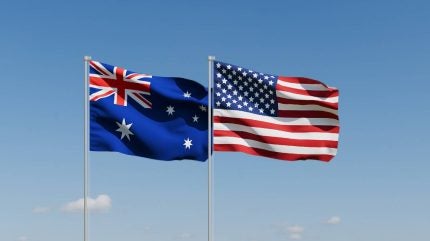
The US and Australia have formalised a deal aimed at enhancing the supply of rare earths and critical minerals in response to concerns over China’s market dominance.
The agreement, a framework for securing supply in the mining and processing of critical minerals and rare earths, outlines a collaborative approach to ensure a reliable supply chain for these essential materials.

Discover B2B Marketing That Performs
Combine business intelligence and editorial excellence to reach engaged professionals across 36 leading media platforms.
It highlights the importance of rare earths and critical minerals in the production of advanced technologies, which are crucial for both nations’ commercial and defence sectors.
The agreement seeks to leverage existing economic policies and investments to foster diversified and competitive markets for these resources.
One of the key components of the framework is intensified cooperation to secure supplies necessary for manufacturing defence technologies and industrial bases.
The US and Australia will also mobilise government and private sector support for capital and operational expenditures including guarantees, loans and regulatory facilitation.

US Tariffs are shifting - will you react or anticipate?
Don’t let policy changes catch you off guard. Stay proactive with real-time data and expert analysis.
By GlobalDataThey will also identify priority projects to address supply chain gaps and aim to provide at least $1bn (A$1.54bn) in financing for projects in both nations within six months.
The framework agreement also addresses the need to streamline permitting processes for mining and processing operations, ensuring compliance with domestic regulations.
In addition, the agreement aims to protect domestic markets from unfair trade practices and develop standards-based systems for pricing.
The two nations will collaborate on recycling technologies and manage critical minerals scrap to enhance supply chain resilience.
A US-Australia Critical Minerals Supply Security Response Group is being established to identify priority minerals and vulnerabilities in supply chains.
It will be led by the US Secretary of Energy and the Australian Minister for Resources.
The agreement does not create legally binding obligations but sets out a framework for cooperation. Participants can discontinue their involvement with written notice, effective 30 days after receipt.





